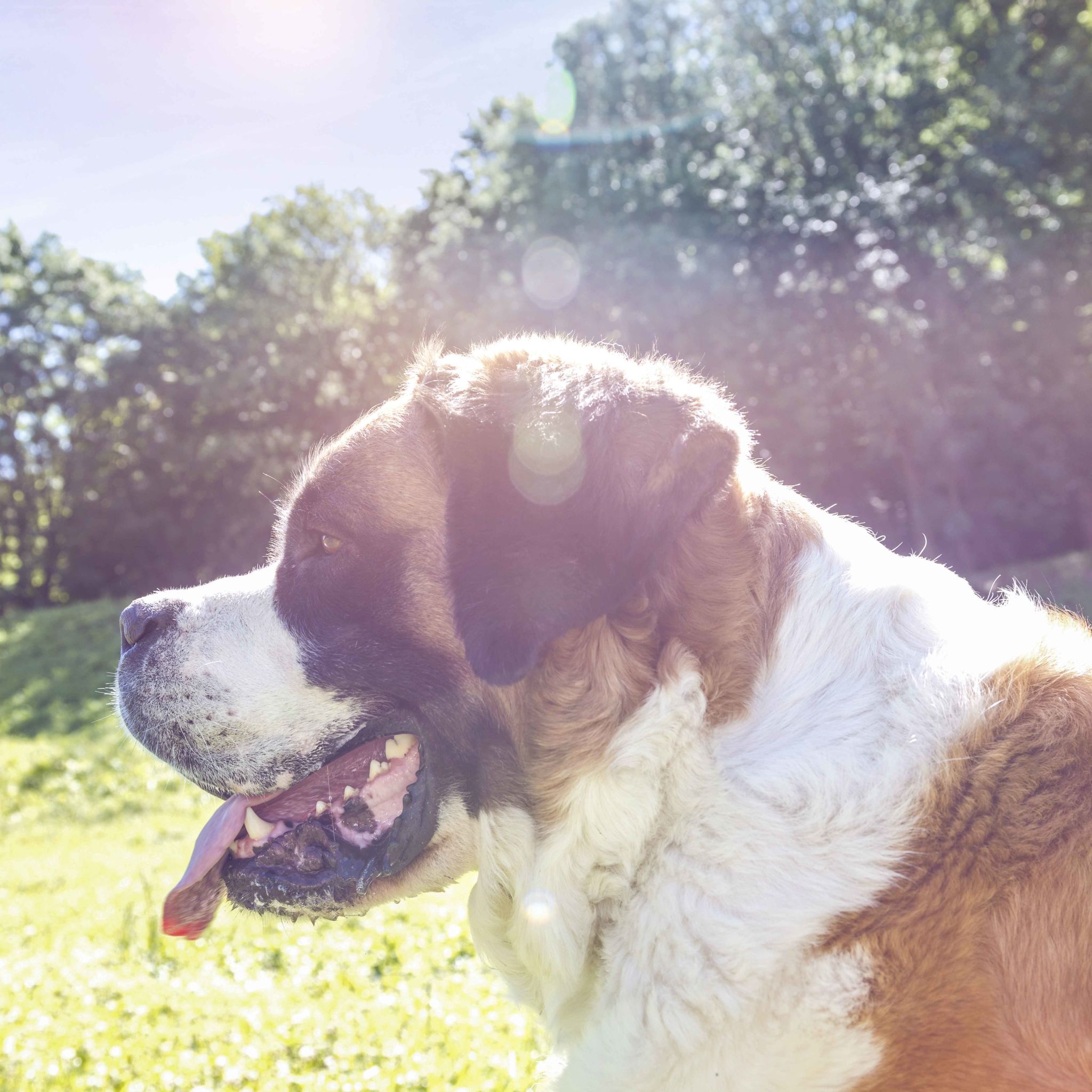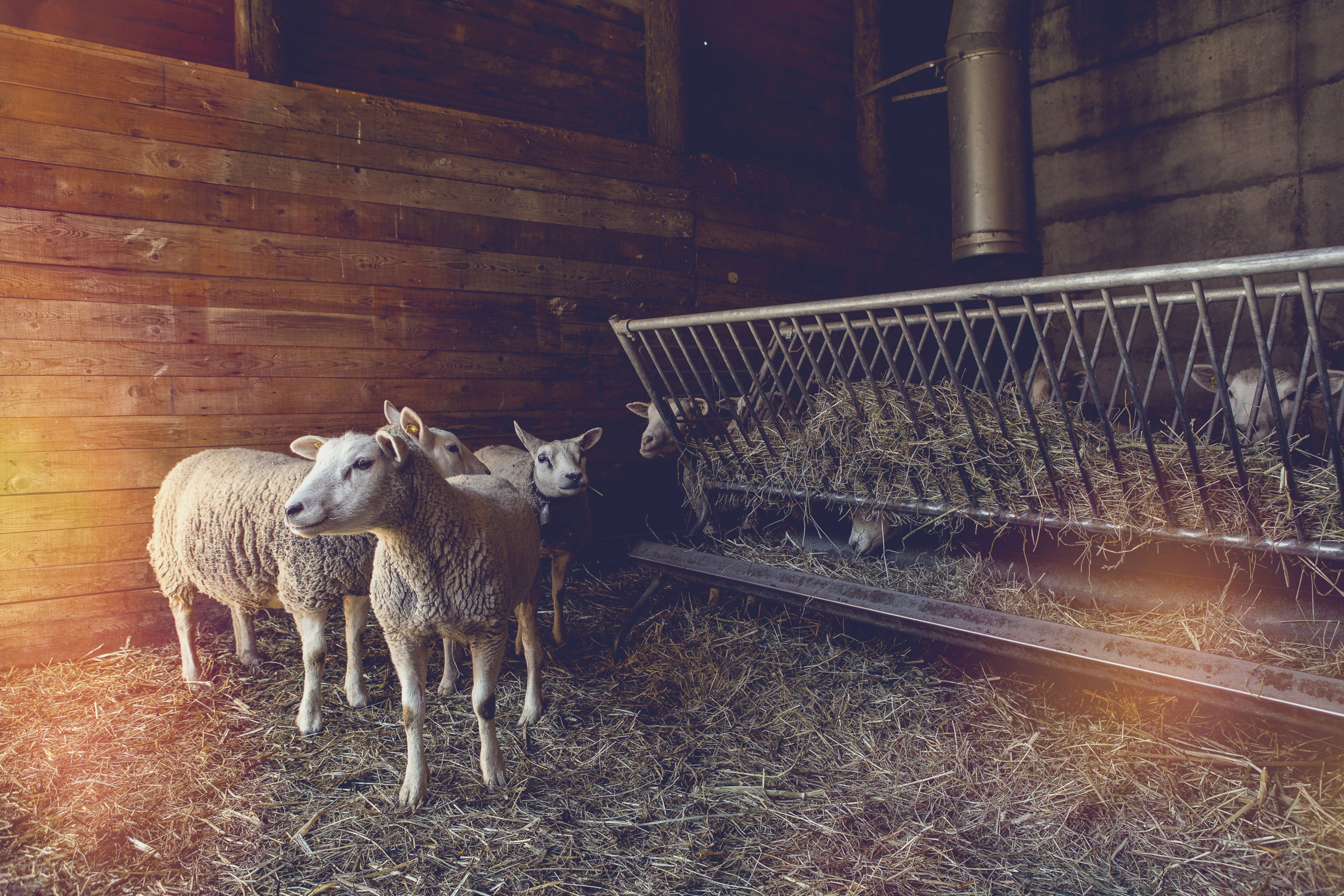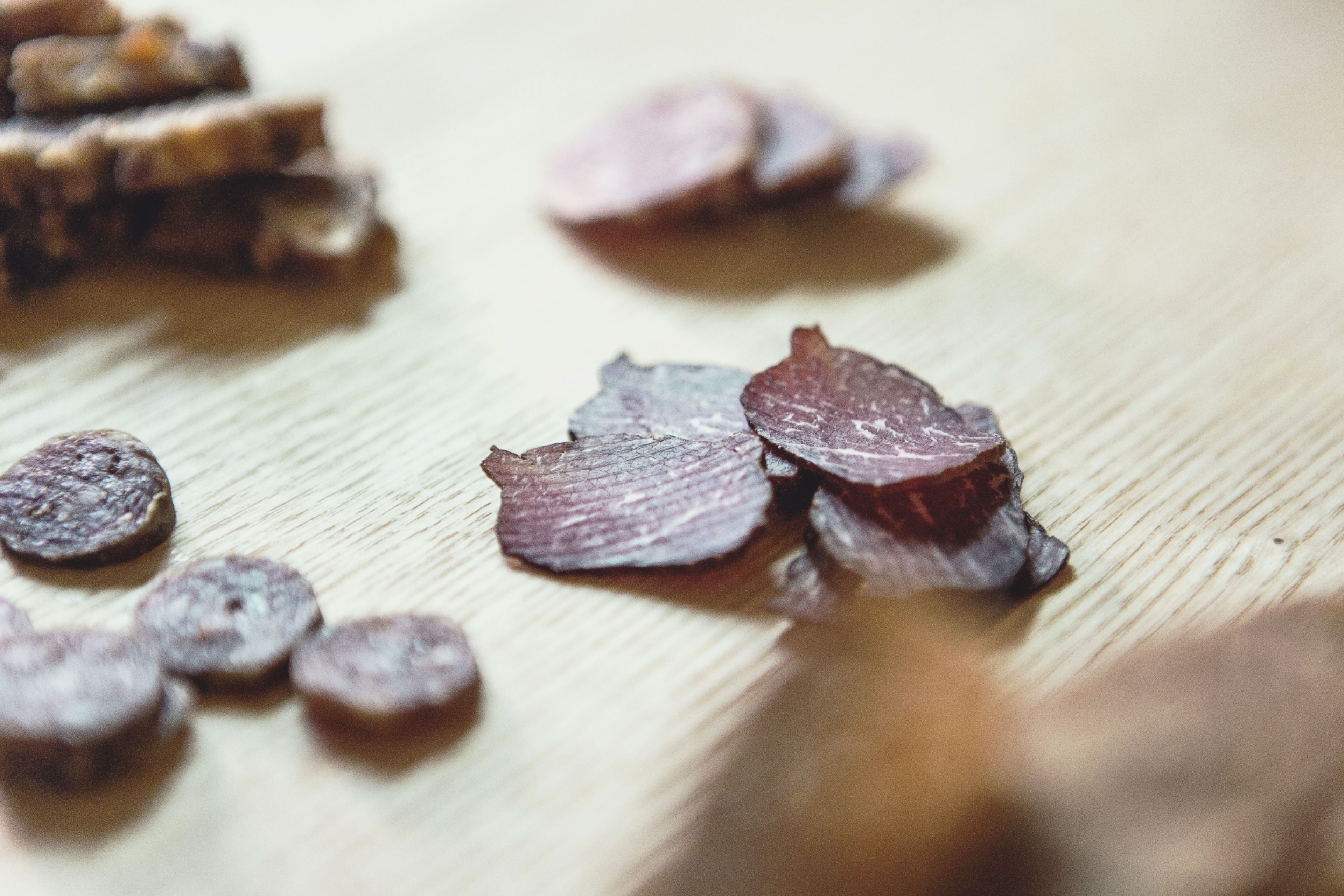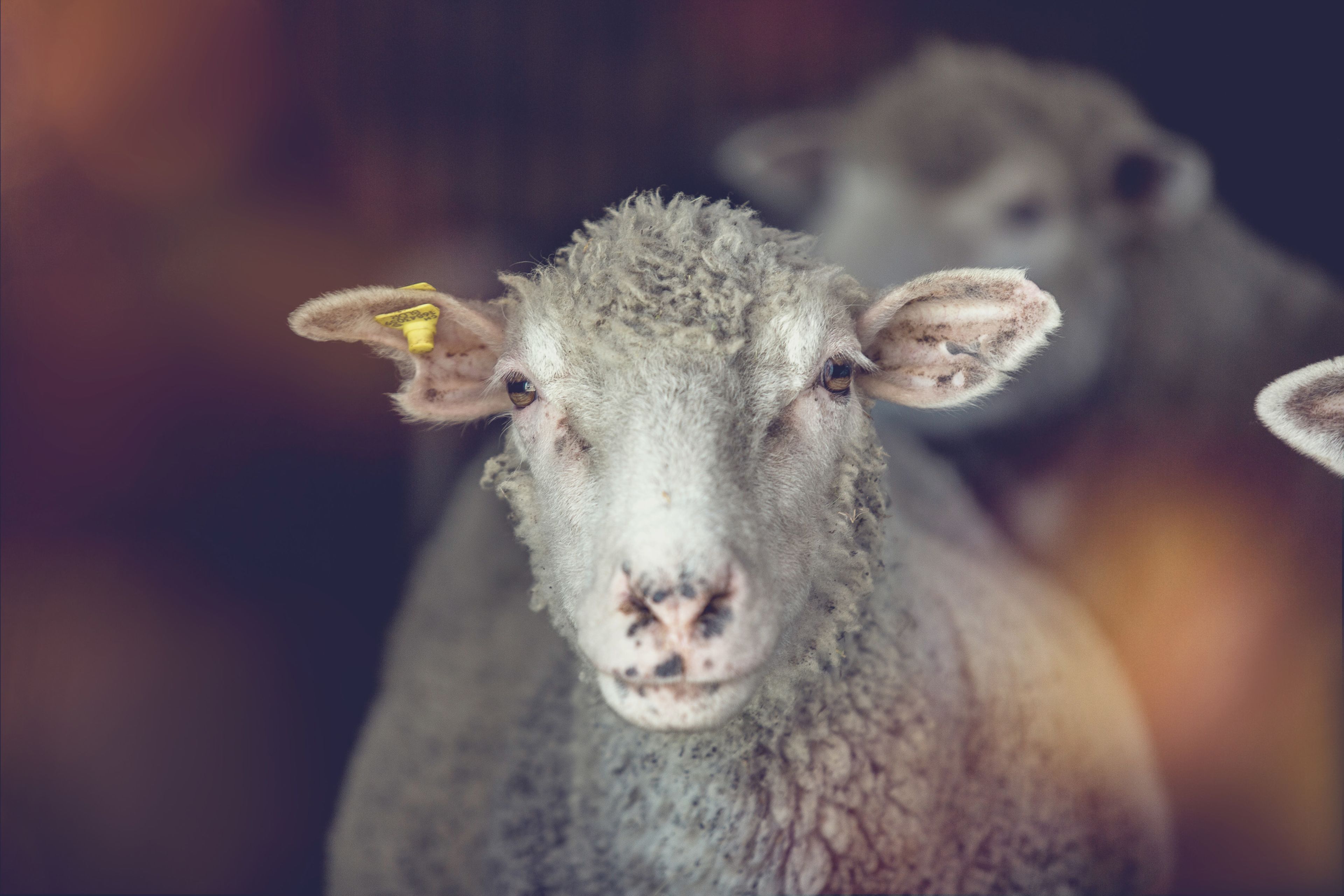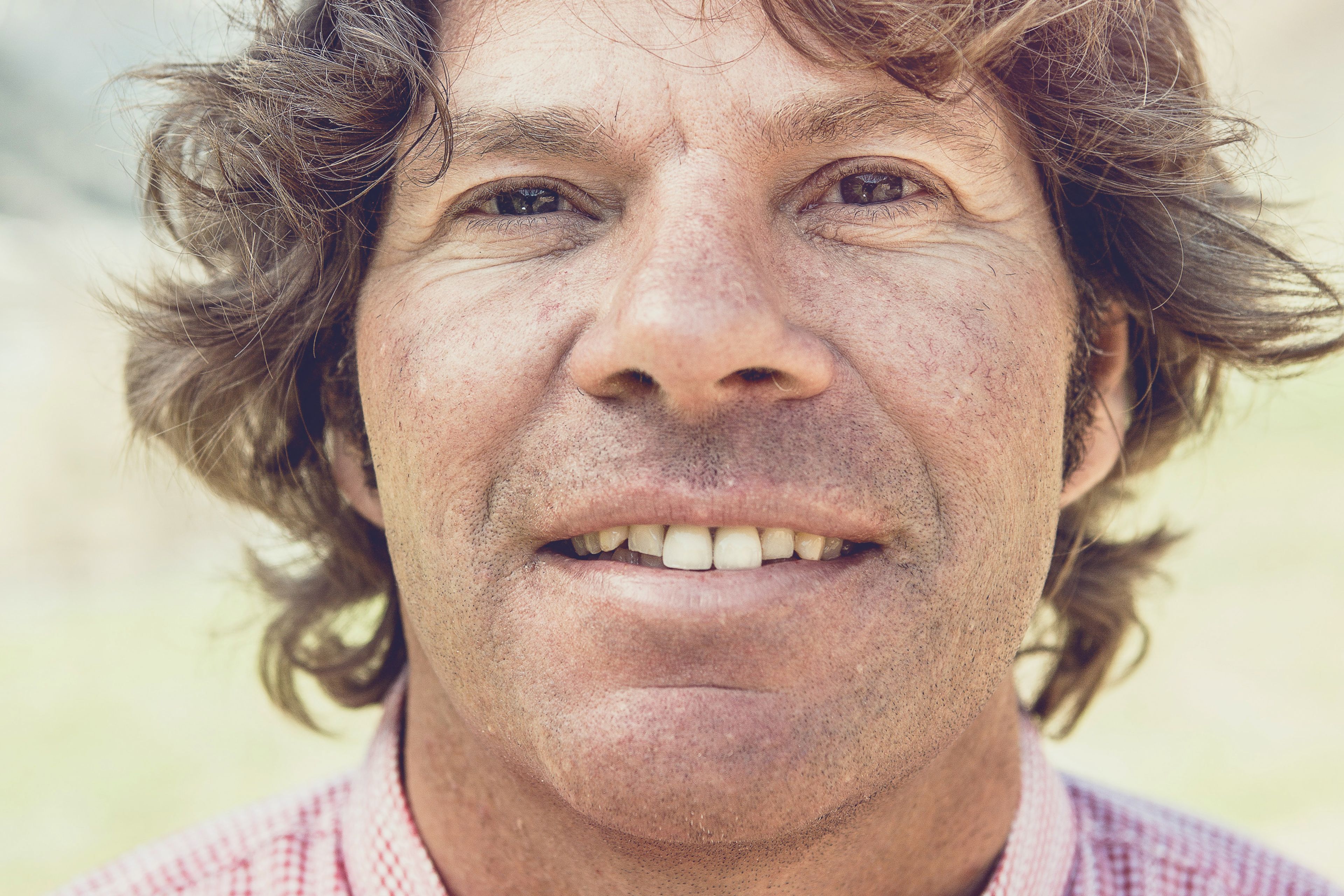Sheep in clover
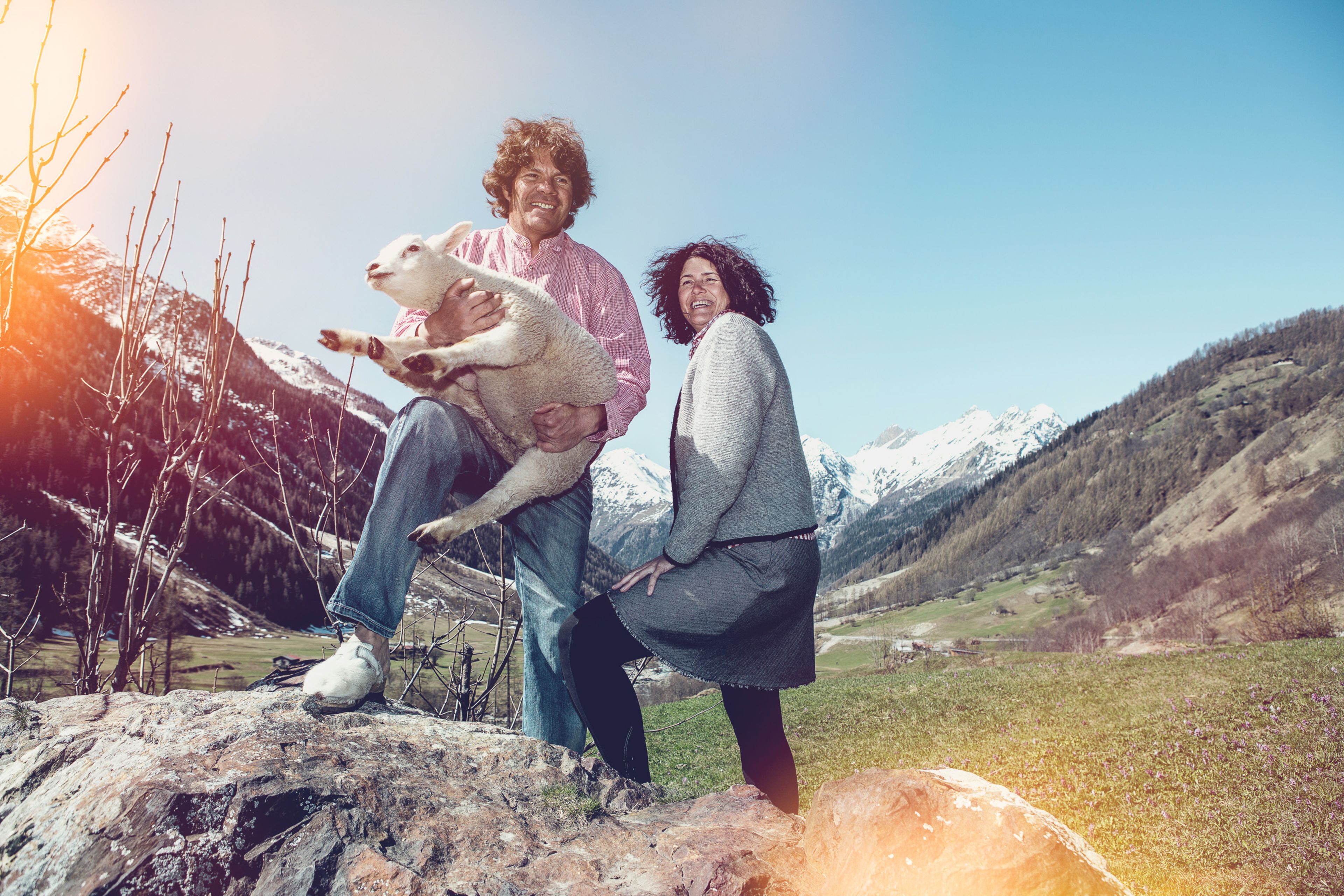
Dani and Karin Ritter are tired but happy. ‘1500 skiing instructors from all over Switzerland were just our guests in Lötschental.’ Dani and Karin saw to it that their guests were well-fed. ‘Our lamb bratwurst was a hit.’ Even those who don't really like lamb asked for seconds.
There is really only one word to describe the drive through Lötschental: picturesque. The road runs through hamlets and villages, all the way to Blatten. There, next to the Hotel Nest- und Bietschhorn, is the Rittlers' farm shop. Dani Rittler grew up here. After a few years in Bern, he returned to the valley and got himself a few sheep as a hobby. But their number grew and grew until his hobby had turned into a professional sheep breeding operation with more than 180 sheep. Dani has found his calling in Lötschental. And the love of his life as well. Karin Rittler came to Lötschental from Salzkammergut. An outstanding cook, she organises the Rittlers' unique catered events. She also takes care of the pretty farm shop. Their 15-year-old son Nathanael also helps out. However, his passion is not sheep, but chickens: he supplies the valley with fresh organic eggs from his small chicken farm.
Sausage as a world cultural heritage
The Rittlers' farm was certified by BioSuisse in 2004. ‘That was a logical step for us.’ Dani Rittler's gaze sweeps over the valley. ‘This place is paradise for the sheep. From the spring to the autumn, they graze in herbal pastures which are part of the UNESCO World Cultural Heritage. It doesn't get any more organic.’ And you can taste it too. Dani has all varieties of lamb meat. ‘We use every part of the sheep and make only the best out of it, if only out of respect for the animals.’ Dani is always encouraging his guests and customers to try something new, and with success: ‘Not long ago, I persuaded an innkeeper to put lamb ragout on the menu. He was sceptical, but the dish become a bestseller.’ There's no arguing with quality. Dani and Karin Rittler are full of drive and their innovative spirit has won them the AgroPrize from the ‘Schweizer Bauer’ [Swiss Farmer] and ‘Terre et Nature’ [Land and Nature] newspapers. ‘If you want to succeed as a sheep breeder in the heart of Lötschental, you need good ideas.’ The valley does seem to provide fertile soil for these. ‘Yes, there are a lot of good people here in the valley. One of our neighbours breeds outstanding organic Galloway cattle.’ The sense of community in the valley is strong. Guests at the neighbouring Hotel Nest- und Bietschhorn are served lamb from the Rittler farm, of course.
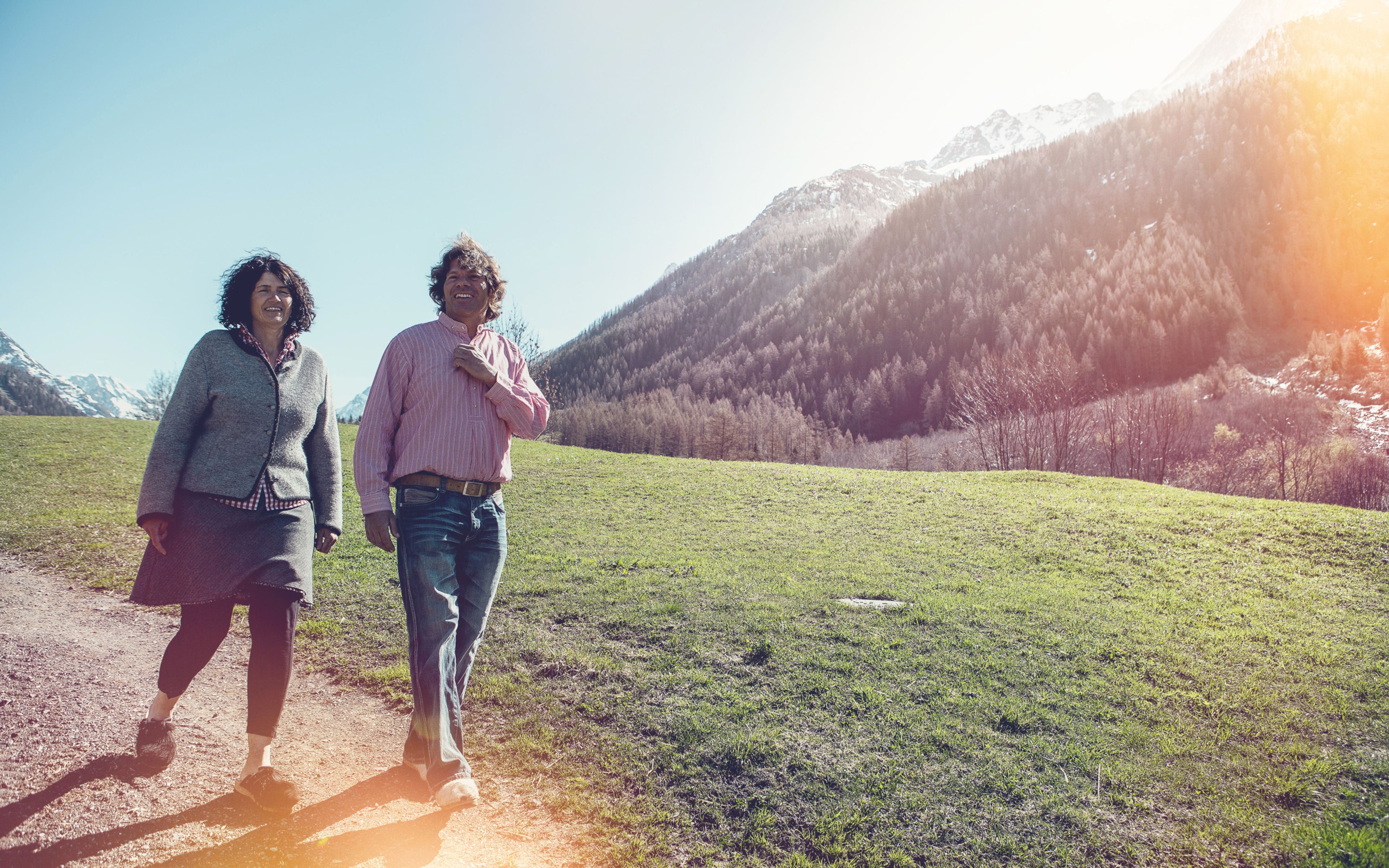
Bons vivants at home
In everything the Rittlers do, they contribute to making Lötschental a tourist attraction. Karin Rittler cooks for small groups of guests in her mask cellar, featuring a wonderful menu. In winter, Dani Rittler will be found with guests on the Lötschental slopes: he is a skiing instructor at the local skiing school. And last but not least, Dani and Karin are real bons vivants. ‘We love to eat in good restaurants and we visit vineyards; as the largest wine-growing region, Valais has many outstanding wines and many of the wine growers in the region are our friends.’ Their finds are available for purchase at the farm shop.
Dani and Karin return to their idyllic barn. Even in winter, the sheep have a lot of room to run, and a gorgeous view of the valley. This gives new meaning to the term ‘animal-friendly husbandry’. ‘A Chinese journalist came to visit not long ago,’ Dani Rittler says. ‘She could hardly believe how well off the sheep are here – and she didn't want to leave.’ ‘Well, yes,’ Karin adds with a smile, ‘maybe that had something to do with you, not just the sheep.’ Dani captures an innocent lamb and lifts it tenderly, Karin hugs him. These two have found their happiness: and all bons vivants are the better for it.
Tender-hearted giants
Next story
